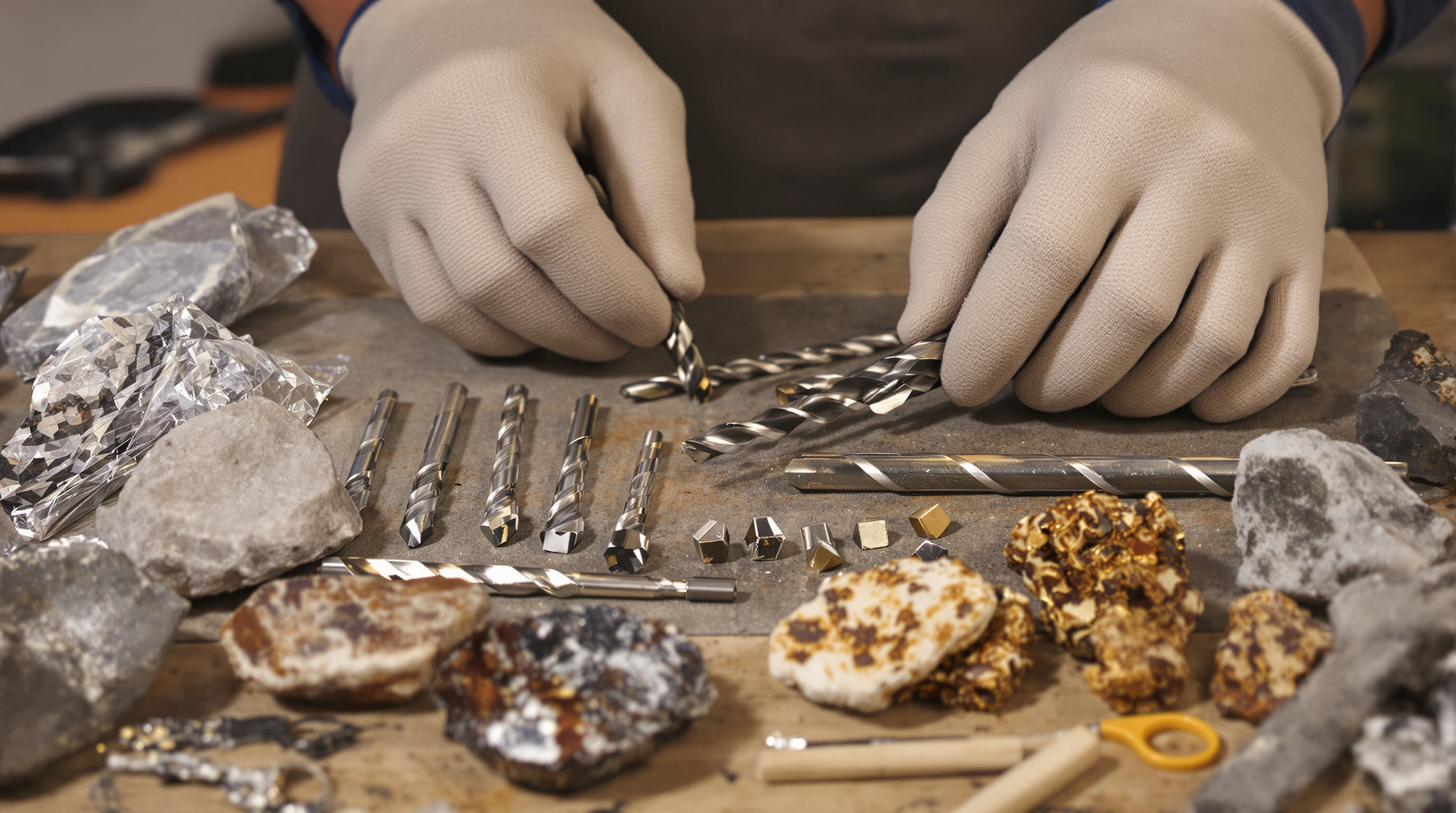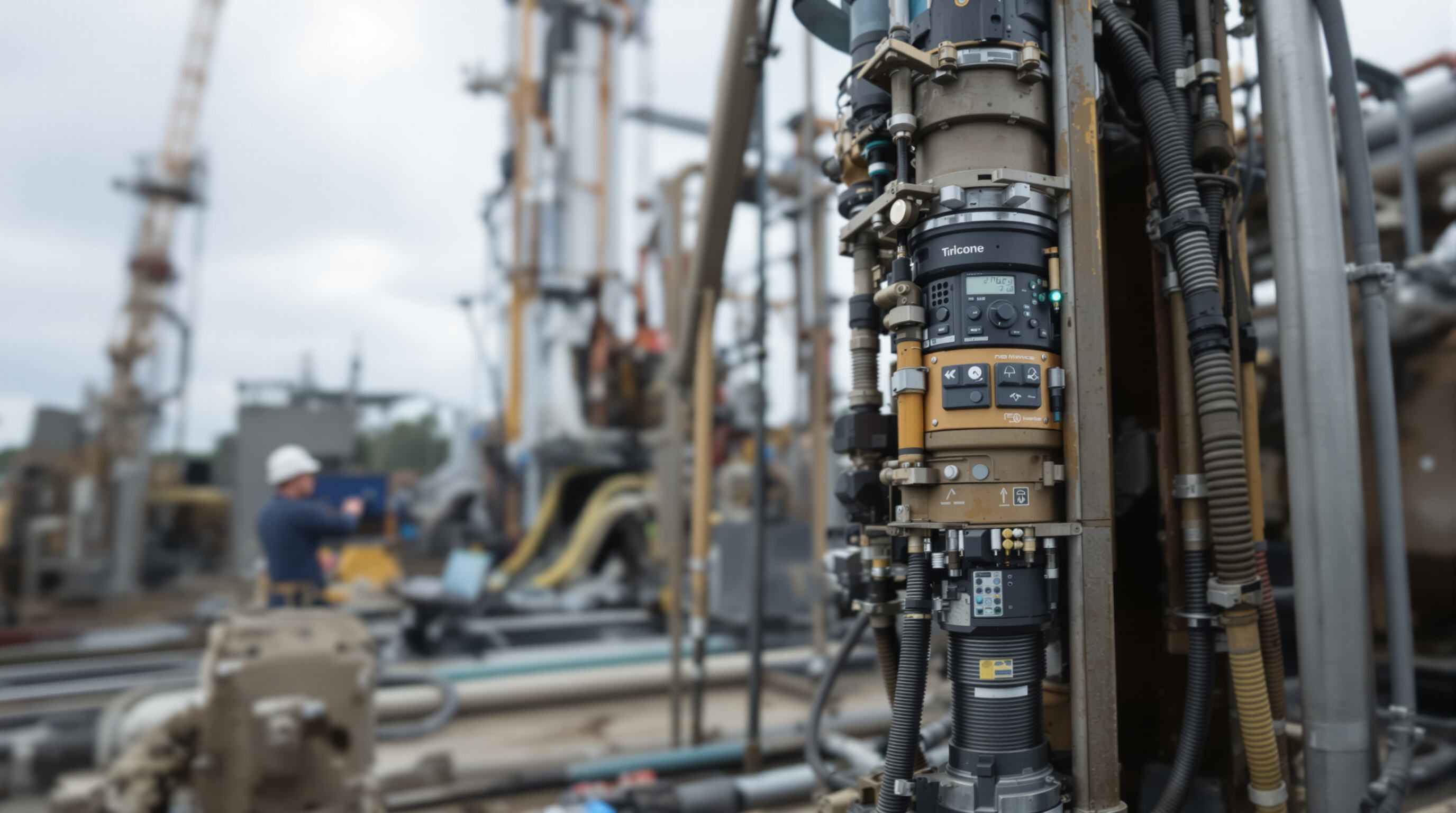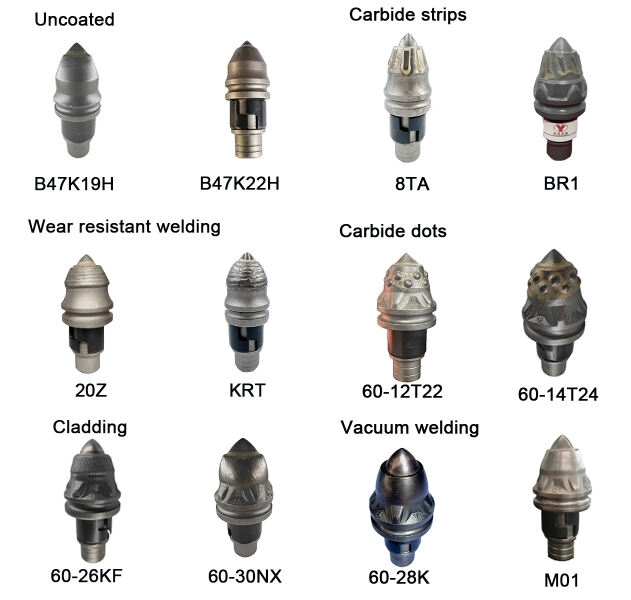Key Selection Criteria for High-Performance Tricone Drill Bits

Effective drill bit selection directly impacts drilling speed, operational costs, and equipment longevity in oil and gas projects. Choosing the right tool requires balancing geological challenges with engineered solutions.
Matching Drill Bit Design to Rock Hardness and Formation Type
Tricone bits perform optimally when matched to specific lithologies. Soft shale formations demand steel-tooth designs with wide spacing for fast penetration, while hard abrasive layers require tungsten carbide inserts and reinforced cones. A 2023 IADC study found that improper hardness matching reduces bit lifespan by 40–60% in granite and quartzite formations.
Critical Features: Bearing Types, Gauge Protection, and Hydraulic Efficiency
| Feature | Impact on Performance | Failure Risk Reduction |
|---|---|---|
| Sealed Roller Bearings | Handle 15,000–25,000 RPM loads | 35% fewer bearing seizures |
| Gauge Protection | Maintains hole diameter in fractured zones | 50% less reaming required |
| Optimized Hydraulics | Removes 98% of cuttings in soft formations | 28% lower torque fluctuations |
High-pressure drilling fluid systems require precisely angled nozzles to prevent balling in sticky clay layers while cooling cutting structures.
How Data-Driven and Customized Bit Selection Improves Drilling Performance
Modern operators combine real-time drilling data with historical formation records to create customized bit configurations. This approach reduced average drilling time by 19% in Permian Basin shale projects (2022 SPE report). Machine learning algorithms now predict optimal tooth angles and bearing tolerances for specific downhole vibration patterns.
Schlumberger (Smith Bits): Innovation and Reliability in Tricone Drill Bits
Technological evolution and industry leadership of Smith Bits
Smith Bits has driven tricone drill bit innovation through strategic R&D investments exceeding $150M annually since 2018, focusing on IoT-enabled sensors and machine learning-driven designs. Their DiamondJet™ cutting structure, optimized through real-time drilling data analysis, delivers 30% faster penetration rates in hard rock formations compared to conventional bits.
Patented materials and designs enhancing durability and efficiency
The manufacturer’s patented TC4™ tungsten carbide inserts withstand 45,000 PSI compressive strength, while their Pressure Balanced Lubrication System extends bearing life by 57% in high-vibration environments. Recent field tests in the Permian Basin demonstrated 650 rotating hours without seal failure—40% above industry benchmarks for similar tricone drill bits.
Case study: Deepwater drilling performance in the Gulf of Mexico
During a 2023 deepwater campaign, Smith Bits’ FX95 series achieved 2,870 feet of 12.25" hole section in a single run through alternating shale and limestone layers. The integrated gauge protection system maintained 99.2% borehole circularity, reducing torque fluctuations by 62% and saving the operator $740k in tool replacement costs (Ponemon 2023).
Baker Hughes: Engineering Excellence for Harsh Drilling Environments

Application-specific tricone bit designs for extreme conditions
Baker Hughes makes special tricone drill bits that work best in tough drilling situations such as deep underwater oil fields and complicated geological formations. The bits are built with stronger materials and better metal compositions so they can handle things like gritty sandstone, tough shale rock, and mixed layer formations that would wear down regular equipment. For different areas, engineers adjust how the cones are arranged, positioning teeth just right for local rock conditions. They also have unique protection features around the edges of the bit that stop it from wearing out too fast when drilling at odd angles through the earth. Field tests show these customized bits cut down on problems caused by vibrations by about 22 percent over standard models, which means fewer interruptions during actual drilling operations.
Performance in high-pressure, high-temperature (HPHT) operations
When working in those really extreme conditions above 300 degrees Fahrenheit and around 20 thousand pounds per square inch, Baker Hughes turns to special tungsten carbide reinforced teeth along with metal face seals that hold up against all that heat stress. Their pressure balanced bearings last about 30 percent longer down there in those deep wells where regular drill bits just give up. They've also got these fancy computer simulations for fluid movement that help figure out where to put nozzles and how to get better hydraulic performance. This makes sure cuttings get cleared away properly without getting stuck in clay rich areas. All these improvements mean drilling keeps going at good speeds even when temperatures rise by over two degrees every hundred feet downhole.
Integration of digital monitoring with physical drill bit systems
Baker Hughes pioneers smart drill bit technology through embedded sensors that transmit real-time performance data to surface systems. This integration enables continuous monitoring of:
- Vibration patterns and stick-slip incidents
- Downhole temperature and pressure fluctuations
- Bearing health and tooth wear metrics
Machine learning algorithms process these data streams to predict maintenance needs and automatically adjust drilling parameters. The closed-loop system reduces NPT (non-productive time) by 18% through early failure detection while optimizing weight-on-bit and rotational speed for maximum efficiency.
NOV (National Oilwell Varco): Durable and Cost-Effective Tricone Solutions
NOV’s market position and comprehensive drill bit product range
National Oilwell Varco holds the number four spot among global diversified oilfield service providers and stands out as the biggest maker of rig systems in the business. Morningstar reports show that for about twenty years now, this company has held more than half of the market share when it comes to rig systems, both on land and at sea. NOV offers a wide array of tricone drill bits that work well in different types of underground formations ranging from soft shale all the way through to really tough abrasive rock. These bits come with special features such as sealed bearings and protective coatings around the cutting edges. Field workers appreciate having so many options because they can pick bits specifically designed for whatever kind of rock they happen to be drilling through on any given day.
Material science advancements driving bit longevity
What really sets NOV apart when it comes to durability? Material innovation is at the heart of their competitive edge. They mix high strength alloy steels with tungsten carbide inserts that have been specially treated using their own unique metal working techniques. The result? Bits that last significantly longer in tough conditions where regular tools would quickly wear down. Some tests show around a 30% improvement in resisting abrasion compared to standard equipment. Plus they've got advanced sealing systems that keep fluids out, which means bearings stay intact much longer than usual. All these improvements mean fewer interruptions during drilling projects. And for companies paying top dollar per hour for rig time, every minute saved translates directly into bottom line savings.
Field performance: NOV vs. competitors in shale formations
North American shale drillers have noticed something interesting about NOV's tricone bits when compared to those fancy premium brands on the market. Field tests in places like the Permian Basin show these bits last anywhere from 12 to 15 percent longer on average. The secret seems to be their improved cutter design plus stronger leg construction that holds up better under pressure. What's really impressive though is how they match the speed of penetration of top name competitors while cutting costs by around 18% per foot drilled in those long horizontal sections. For operators running multiple rigs across vast shale formations, this kind of combination between lasting power and money savings becomes a major factor when choosing what goes into the hole. After all, nobody wants to spend extra bucks just because a bit looked good on paper.
Wuhan Yi Jue Tengda & Emerging Manufacturers: Value and Quality in the Global Market
Rise of Chinese Manufacturers in the Global Tricone Drill Bit Supply Chain
Chinese companies currently make up around 40 percent of the world market for tricone drill bits, thanks largely to their ability to scale operations quickly while keeping costs down. Government support has really helped these manufacturers expand their production lines at an impressive rate, often turning out 15 to 20 percent more products each year compared to similar facilities in Europe or North America. What's behind this surge? A lot of it comes down to how these firms control their supply chains from start to finish. Many have secured steady access to critical materials like tungsten carbide right from the source, plus they've invested heavily in computer numerical control machines that allow for much finer tolerances during manufacturing.
Competitive Pricing and Export Strategy of Wuhan Yi Jue Tengda
Wuhan Yi Jue Tengda Machinery Co., Ltd. has captured 30% of Southeast Asia’s drill bit market through aggressive pricing models ($1,200–$1,800 per bit vs. $2,500+ for Western brands). The company prioritizes export-ready designs compliant with API 7-1 standards, coupled with bulk-order discounts and localized logistics hubs in Malaysia and Nigeria.
Quality Control, ISO Certifications, and Performance Consistency Challenges
While 85% of Wuhan’s bits meet ISO 9001:2015 tolerances, field tests reveal a 12% higher failure rate in abrasive formations compared to forged-steel competitors. Independent audits (2024) show only 63% of emerging Chinese manufacturers maintain consistent heat-treatment protocols, creating variability in sealed bearing performance beyond 250 hours of operation.
FAQ
What factors are most important when selecting a tricone drill bit?
The most crucial factors include matching the bit design to rock hardness and formation type, choosing the right bearing type, ensuring proper gauge protection, and optimizing hydraulic efficiency.
How does data-driven customization improve drilling performance?
Data-driven customization uses real-time drilling data combined with historical records to adjust bit configurations, significantly reducing drilling time and adapting to specific conditions.
What are the advantages of Chinese manufacturers in the tricone drill bit market?
Chinese manufacturers offer competitive pricing, have expanded rapidly due to governmental support, and control supply chains effectively, allowing them to produce high quality bits at lower costs.
How do innovations by manufacturers like Smith Bits and Baker Hughes enhance drill bit performance?
Smith Bits and Baker Hughes use advanced technologies like IoT sensors, patented materials, and machine learning algorithms to optimize designs for durability, efficiency, and adaptability in challenging environments.
Table of Contents
- Key Selection Criteria for High-Performance Tricone Drill Bits
- Schlumberger (Smith Bits): Innovation and Reliability in Tricone Drill Bits
- Baker Hughes: Engineering Excellence for Harsh Drilling Environments
- NOV (National Oilwell Varco): Durable and Cost-Effective Tricone Solutions
- Wuhan Yi Jue Tengda & Emerging Manufacturers: Value and Quality in the Global Market
-
FAQ
- What factors are most important when selecting a tricone drill bit?
- How does data-driven customization improve drilling performance?
- What are the advantages of Chinese manufacturers in the tricone drill bit market?
- How do innovations by manufacturers like Smith Bits and Baker Hughes enhance drill bit performance?


